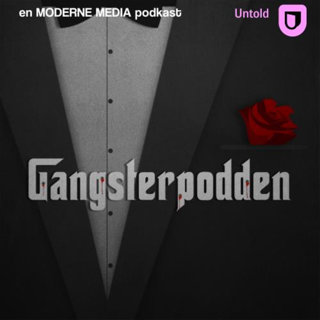
27. The Golden Age continues
Charles II's Golden Age continues in this next episode, although the title, with its trace of irony, rather betrays some of the things that were going on under the surface. A lot of duplicity by the merry monarch, as well as some fine mistresses, and a growing head of steam for more active anti-Catholicism, drawing considerable encouragement from the behaviour of the monarch himself Illustration: Louise de Kéroualle, Duchess of Portsmouth, with an unknown female attendant by Pierre Mignard, 1682 National Portrait Gallery 497 Music: Bach Partita #2c by J Bu licensed under an Attribution-NonCommercial-No Derivatives (aka Music Sharing) 3.0 International License
29 Mar 20218min

26. Restoration
As any fan of Tolkien's Lord of Rings can tell you, nothing beats the return of a king. After the chaos that followed Richard Cromwell's following Oliver as Lord Protector, the restoration of Charles II, another Stuart, to the English throne seemed a relief and a promise of stability. What's more, his character - not for nothing is he called the Merry Monarch - promised lots of good things. Sadly, though, there weren't just good things... Illustration: Nell Gwynn in about 1680, by Simon Verelst National Portrait Gallery 2496 Music: Bach Partita #2c by J Bu licensed under an Attribution-NonCommercial-No Derivatives (aka Music Sharing) 3.0 International License
24 Mar 202113min

25. Protectorate
In the 1650s, power concentrated in England into fewer and fewer hands, until in the end a Lord Protector was appointed and - surprise, surprise, since he dominated the Army Council which appointed him - Oliver Cromwell got the job. As it happens, a (somewhat cowed) parliament worked alongside him, so in a sense England had reached the point which parliament had sought before the Civil Wars: shared authority between a single ruler and itself. But most of the people running the system remained the same as before, or at least of the same class and mentality, and there had been no real revolutionary change. So it isn't hard to see that the republic would slide back into monarchy once Cromwell had died. This episode also looks at a couple of lasting legacies, however: Jews allowed back into England, and the triumphant bursting of coffee onto the scene. Long before tea... Illustration: Interior of a London Coffee-house, 17th century Anonymous: Unknown author, Public domain, via Wikimedia Commons Music: Bach Partita #2c by J Bu licensed under an Attribution-NonCommercial-No Derivatives (aka Music Sharing) 3.0 International License
19 Mar 202113min

24. Republic
Who could imagine that England could ever be a republic? And yet for eleven years it became one. Still, it would be a serious mistake to confuse 'republic' with 'democracy'. It swiftly became clear, as Oliver Cromwell rose to the summit of power - a power he never sought for personal satisfaction but saw as a necessary chore to take the country in a godly direction - that it was going to become something far closer to a despotic regime. A limited one, without the persecution of opponents you might expect, but not by any means a state based on the consent of the governed. That, the hope of some including, most notably, the Levellers, was not going to happen. Illustration: Cromwell turns out the Rump Parliament because of its corruption, 1653 ©petervick167/123RF.COM Music: Bach Partita #2c by J Bu licensed under an Attribution-NonCommercial-No Derivatives (aka Music Sharing) 3.0 International License
14 Mar 20219min

23. An uncertain throne and an oak tree
We start with Charles I's son mounting a throne in Scotland as Charles II, and end with him hiding up an oak tree, throneless once more. In between, lots of exciting battles, all rather boringly won by the same Cromwell with the same army, and the even more thrilling betrayal and execution of the Marquess of Montrose. Betrayed by the 'master fiend Argyll' or perhaps betrayed to Argyll by the very master, Charles II, he sought to serve so faithfully? Illustration: Archibald Campbell, 1st Marquess of Argyll, after David Scougall National Portrait Gallery 3109 Music: Bach Partita #2c by J Bu licensed under an Attribution-NonCommercial-No Derivatives (aka Music Sharing) 3.0 International License
9 Mar 20218min

22. A desert called peace
This is the chapter where we reach the Third English Civil War. We've seen that though their concerns may have been mainly English, the civil wars were by no means limited to England. They were, indeed, wrapped up in the Wars of the Three Kingdoms. So far, I've tended to ignore Ireland a bit, and this episode will put that right. Especially as Cromwell's actions in Ireland are a major element of his career, showing him to be once more a victorious general, but not a particularly humane rules, or even a merciful one. That being said, there's no need to overstate the horrors associated with his campaign in Ireland. There's certainly been exaggeration down the centuries. But, frankly, the truth of what happened in Ireland during Cromwell's campaign is quite horrific enough anyway. In a long history marked by terrible moments, Cromwell's campaign in Ireland was one of the bleakest in the relations between Britain and that long-suffering island. Illustration: Oliver Cromwell by Robert Walker Oil on Canvas, circa 1649 National Portrait Gallery 536 Music: Bach Partita #2c by J Bu licensed under an Attribution-NonCommercial-No Derivatives (aka Music Sharing) 3.0 International License
4 Mar 20218min

21. Round 2 and a deluded king’s fine death
When the Scots began to worry about the increasing power of the New Model Army, and even whether it might be a bigger threat to them than the king, they decided to open negotiations with him. The result was a strange alliance between former enemies. Charles escaped and joined them, launching the Second English Civil War. Which he lost, just like the First. This time, though, his enemies had run out of patience with him. They decided that he had to go. For that, they organised a show trial, but even to get that they first had to pull off a military coup. With all that in place, they got their trial and eventually the execution they wanted. Which Charles went to with courage and dignity, that won him widespread affection again. In fact, he handled his death so well that it seems rather a pity he didn't handle his life as wisely. The illustration is an engraving from Nalson’s Record of the Trial of Charles I. Plate 2 from “A True copy of the journal of the High Court of Justice for the tryal of K. Charles I as it was read in the House of Commons and attested under the hand of Phelps, clerk to that infamous court”, taken by J. Nalson Jan. 4, 1683. Credit: British Museum / Commons. Music: Bach Partita #2c by J Bu licensed under an Attribution-NonCommercial-No Derivatives (aka Music Sharing) 3.0 International License
27 Feb 202111min

20. Interlude
The First Civil War had ended. King Charles I had lost, which wasn't just a military or political problem, but a religious one too: after all, if God had made him king, and God also determined who won wars, who could make sense of what was going on? Had God sided with Parliament against the king he'd set on his throne in the first place. In practical terms, Charles was in captivity, a prisoner of Parliament. In the country at large, normal politics could have restarted, if politics had been anything like normal. There were tensions between Parliament and Parliament's army, which was beginning to do some of its own political soul-searching. Which was particularly interesting, since it was the most powerful organisation in the country. And, within the army itself, there were tensions too, as new trends appeared, among common people, wondering whether, what will all the fighting they were doing, and all the sacrifices they had made, they shouldn't be given a bit more of a say in the running of the state. Fascinating debates. Sadly cut short. Because Charles may have been down, but he wasn't yet out. And he could still do something destructive and self-destructive. The illustration is the front page of one of the versions of the Leveller document, 'An Agreement of the People', laying out demands for wider political rights. Music: Bach Partita #2c by J Bu licensed under an Attribution-NonCommercial-No Derivatives (aka Music Sharing) 3.0 International License
22 Feb 202114min





















